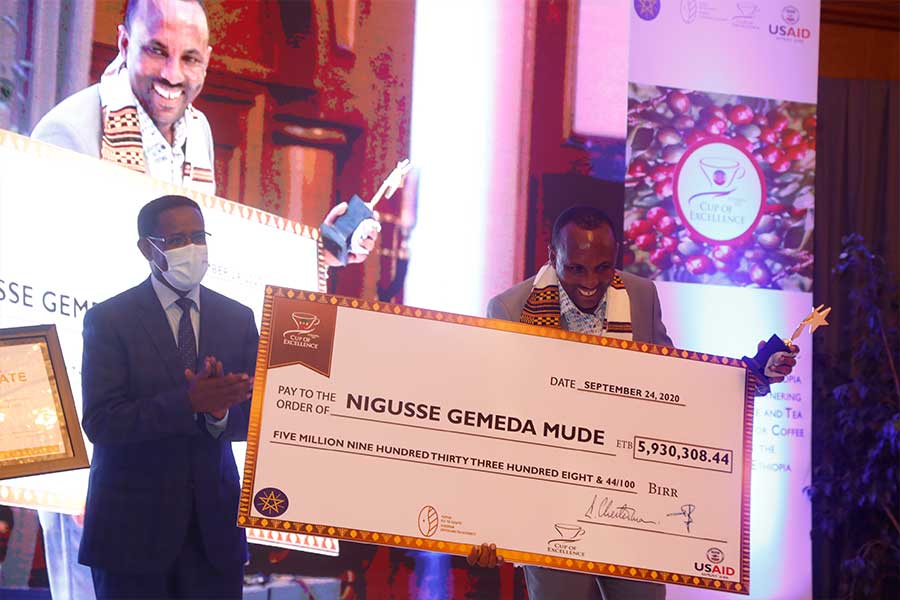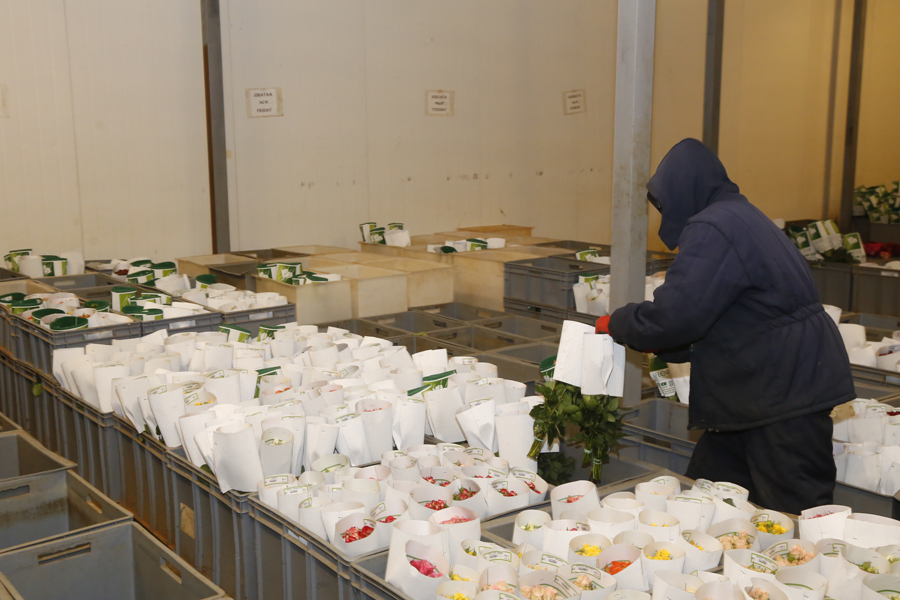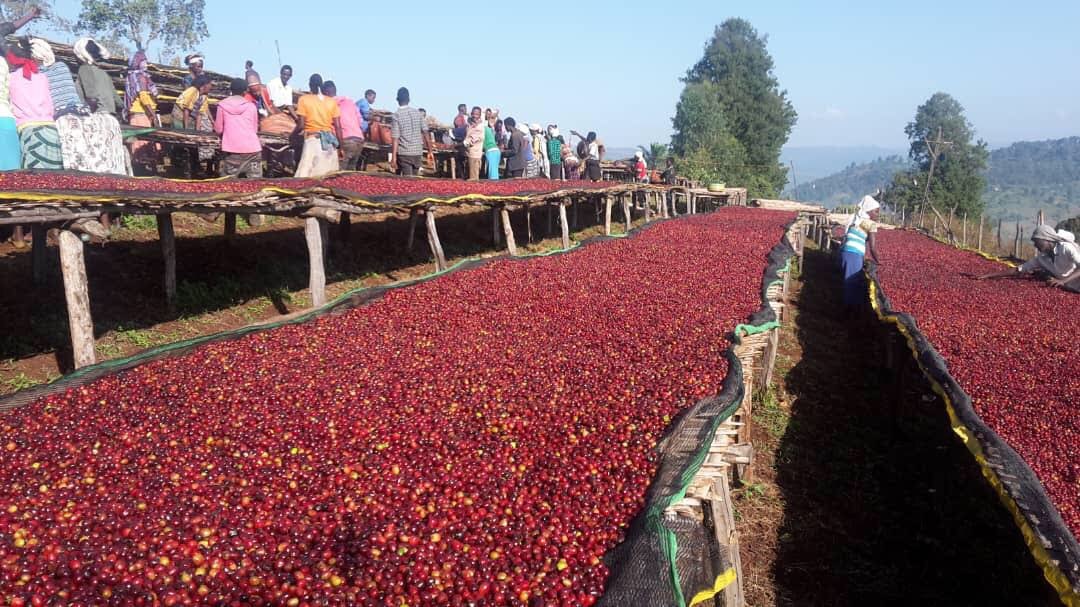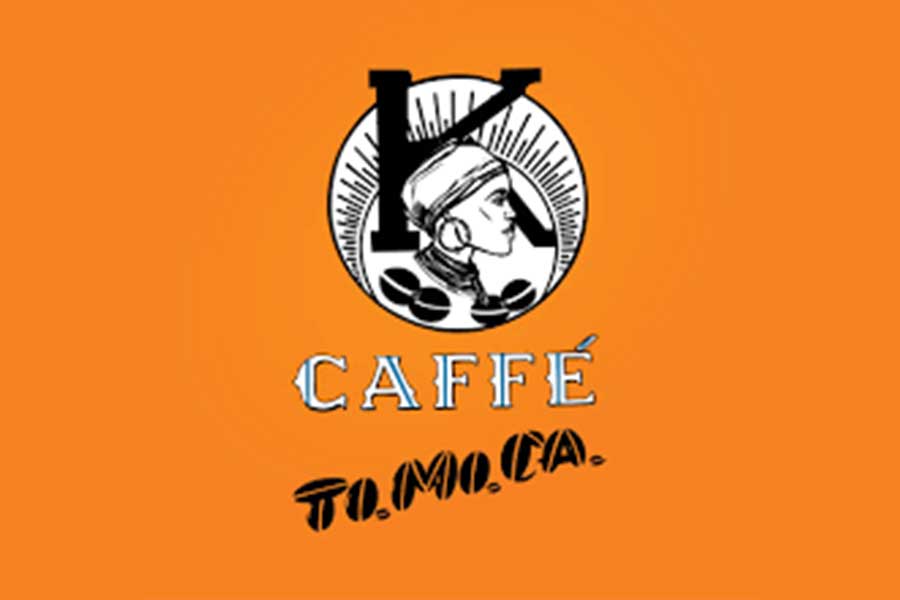
Radar | Jan 11,2020
Apr 30 , 2021
By NEJAT AHMED ( FORTUNE STAFF WRITER )
Hebron Ethiopia Trading Plc, a company operating in Yirgalem Agro-Industrial Park, is gearing up to begin the production of coffee capsules used for brewing espressos with an investment capital of 80 million Birr.
The company, which is just months away from introducing the value-added coffee product to the domestic market for the first time, has already brought in the first shipments of the encapsulating machinery and other equipment needed to produce the capsules, small, metal and plastic containers that hold between five to seven grams of ground coffee and are meant for use with an automated capsule espresso machine to brew an instant cup.
The family-owned business, which has spent 17 million Br to procure equipment, can produce three brands of capsules – Nespresso, A Modo Mio, and Lavazza Blue, but will begin production with only the Nespresso type because it has better market acceptance, according to Daniel Eilu, general manager of Hebron.
Around 14 billion capsules of Nespresso, which is one of the products of Nestlé, are sold annually throughout the world, making it a market leader globally, while a unit costs between 0.87 dollars and 1.2 dollars. Growing by more than 50pc annually, the global orders placed for coffee capsules par with more than half of all coffee orders online.
Understanding the huge global market, Hebron plans to ship 80pc of its capsule exports to Europe, where the product has already become common. The remaining 20pc will be marketed domestically.
"There is a huge demand for capsules in Europe. That is a big opportunity for us," Daniel added.
His company also plans to import capsule espresso brewing machines and distribute them to offices and workplaces with a discounted supply of the capsules to promote the product. Hebron's plant lies on 6,000sqm of land in the agro-industrial park, which was inaugurated around two months ago, leased from the Sidama Industrial Park Corporation for 30 years at the cost of 7,200 dollars a month.
The company was principally given a license for investment in Ethiopia in September 2019 from the SNNP Regional State. But following the 2019 Sidama referendum, it was forced to apply for a license from the Sidama Regional State Investment Bureau, which was granted in September 2020. Hebron was then directed to the Federal Investment Bureau, where a final license was issued a month later.
Hebron Trading Plc is a family business that has been producing and selling Nespresso capsules since 2004 in Italy, a country known for its special attention to the preparation and selection of blends, and the use of accessories when brewing various kinds of coffee. The owners wanted to bring the concept to Ethiopia, where coffee made up 28.6pc of export earnings last fiscal year, investing 80 million Br with the aim of increasing earnings from value-added products.
More than 90 percent of coffee exported by Ethiopia, which totalled 866 million Br during the last fiscal year, is in the form of unprocessed coffee beans, which are not value-added. Processing the coffee domestically and exporting the resulting products could potentially add billions of dollars a year to export earnings.
"Producing the final product in Ethiopia will help the country keep more than 83pc of the benefits it's failing to gain in the coffee life cycle," said Daniel.
The company also plans to offer packaged coffee, both unprocessed and roasted, for local consumption and export. Hebron is prepared to produce four products and two blends from coffee sourced from Guji, Sidama, Yirgachefe, and Jimma.
It will produce 403tn of value-added coffee annually, of which 19.3 tons will be in the form of capsules, according to Daniel. The company is importing its packaging materials from Italy for an indefinite period of time and Hebron will initially be sourcing the coffee from the Ethiopian Commodity Exchange (ECX) but its long-term plan is to purchase coffee directly from farmers, pending approval from the Ethiopian Investment Commission.
Gosaye Terecha, a coffee industry insider with over a decade of experience, stresses that coffee selection is crucial to producing a good product and that the company should focus on sourcing to have a chance of success. He also expressed that value-added coffee will make a difference in the market in more ways than one.
"Rather than being sold in New York, the coffee will be sold through negotiation with buyers that will bring a better price and foreign currency to the country," he told Fortune. "In addition, it will help make Ethiopian origin coffee known and respected by the rest of the world."
Hebron is currently conducting a pilot testing phase using locally sourced coffee, and the company hopes to be ready to join the market in July using half of its production capacity.
PUBLISHED ON
Apr 30,2021 [ VOL
22 , NO
1096]

Radar | Jan 11,2020

Fortune News | Oct 20,2024

Fortune News | Oct 07,2023

Radar | Sep 27,2020

Fortune News | Mar 02,2024

Fortune News | May 13,2023

Sponsored Contents | Apr 04,2022

Radar | Aug 28,2021

Radar | Jun 15,2025

Fortune News | Jun 20,2020

Dec 22 , 2024 . By TIZITA SHEWAFERAW
Charged with transforming colossal state-owned enterprises into modern and competitiv...

Aug 18 , 2024 . By AKSAH ITALO
Although predictable Yonas Zerihun's job in the ride-hailing service is not immune to...

Jul 28 , 2024 . By TIZITA SHEWAFERAW
Unhabitual, perhaps too many, Samuel Gebreyohannes, 38, used to occasionally enjoy a couple of beers at breakfast. However, he recently swit...

Jul 13 , 2024 . By AKSAH ITALO
Investors who rely on tractors, trucks, and field vehicles for commuting, transporting commodities, and f...

Oct 11 , 2025
Ladislas Farago, a roving Associated Press (AP) correspondent, arrived in Ethiopia in...

Oct 4 , 2025
Eyob Tekalegn (PhD) had been in the Governor's chair for only weeks when, on Septembe...

Sep 27 , 2025
Four years into an experiment with “shock therapy” in education, the national moo...

Sep 20 , 2025
Getachew Reda's return to the national stage was always going to stir attention. Once...